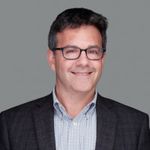Sleep Study Part 2
Last night I went back to the sleep lab for my follow up study. This is the one where I sleep with a CPAP (Continuous Positive Airway Pressure) mask, which is a device that covers my nose and blows a constant pressue of air into my nose. This keeps my airway open, so I can breathe all night.
Before I got hooked up, we reviewed the results from my previous study. The two most remarkable things were that I only slept half the time in the last study. After waking up in the middle of the night, I was awake for two and a half hours. The other is the average number of apnea and hypopnea events occuring every hour: 22. That means that my breathing is either reduced to 50% or 0 22 times every hour. No wonder I am so tired. With the apnea events, I wake up because I cannot breathe. Most of these wakeful events are so brief that I don’t remember them, but the result is the same. I do not get a good night’s sleep.
So the basic routine was the same as the last study. A series of electrodes were attached to my head, face, neck and legs. I was also fitted with a mask over my nose. It had a tube that ran to a compressor on the side of the bed. After I laid down in bed, the technician calibrated all the electrodes. It was very strange once he turned on the CPAP machine. I needed to keep my mouth closed and breathe in an out with my nose. I needed to establish a rhythm of breathing so it could become natural. I eventually fell asleep, even though I don’t normally sleep on my back.
I woke up in the middle of the night having trouble breathing. It was mainly due to some congestion. I used some saline nasal spray to clear the congestion, and fell back asleep pretty easily.
In the morning, when the tech woke me up, I felt more well rested than normal. I wasn’t sure if it was psychological, or if I really did sleep better. Next week I should get the report from my doctor, and the prescription to get my own CPAP machine.
